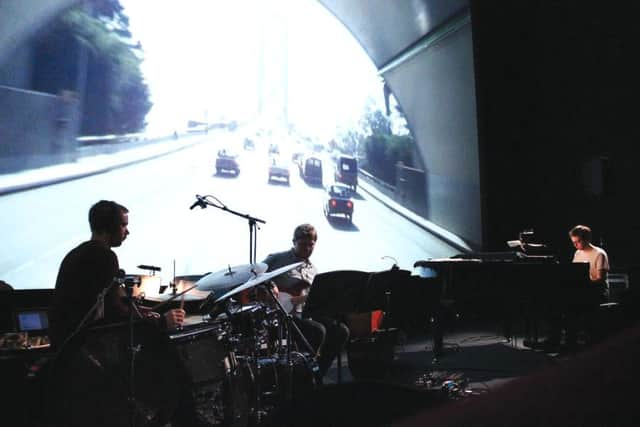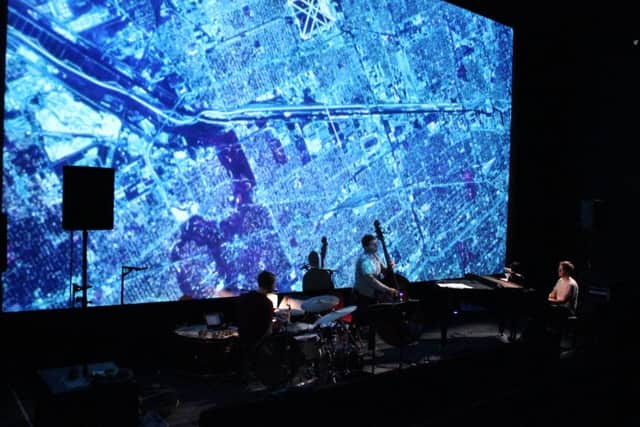Gig review: GoGo Penguin at Howard Assembly Room, Leeds


GoGo Penguin have wisely brought their own distinctive imprint to the work, which they debuted in 2015. Although the Manchester trio may draw influence from Glass’ minimalism, their acoustic jazz also borrows heavily from the electronica of Squarepusher and Aphex Twin.
Impressionistic in nature, their use of dynamics doesn’t always clearly align with the images. This is especially true in the film’s opening sequences, with Chris Illingworth imposing his own interpretation on shots of a desolate desert as his neo-classical piano lines grow increasingly dramatic.
Advertisement
Hide AdAdvertisement
Hide AdThe interplay between image and sound becomes more effective as they move into the urban realm. One ominous, repeated piano note signals the start of human interaction in the environment via mining, pipelines and dams. It gains in urgency, Rob Turner finally breaking a sweat on the kick drum and Nick Blacka plucking out notes on his double bass, as time-lapse footage shows human crowds and traffic flows.


A relentless funk groove emerges, Blacka swapping to an electric bass as the mechanisation of society is explored through factory production and video games. The playing becomes every faster and more jazz-influenced until suddenly it pulls back, develops a reflective tone as individual faces emerge from the amorphous crowds that have previously been shown.
It’s a tone that takes both film and music full circle, the band ending with a sad refrain that perfectly communicates the subtitle: ‘life out of balance’.